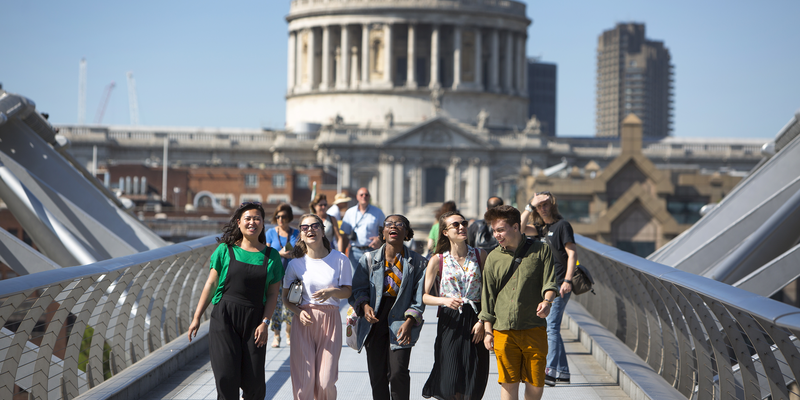Navigating London: A guide for international students
- January 10, 2024
- Applying to university
- No Comments
As an international student, navigating London, one of the most dynamic cities in the world, may seem overwhelming at first, but do not worry – with a little bit of guidance you will learn to navigate the city like a pro! In this blog post, we will provide you with practical tips to make your time in London a great experience.
Accommodation
Finding a comfortable place to live is a crucial step in your London journey. Consider student accommodations that offer a supportive community and convenient amenities. Alternatively, you can explore shared flats or private rentals. Sharing a flat with others can be a great way to meet new people. Keep in mind factors like proximity to university, public transport, and budget.
Making new friends
Making friends at university can seem scary at first but it’s a lot easier than you think! The best place to start is by getting involved in campus events and joining student societies that match your interests. There are also several websites and social media groups that offer regular meetups, as well as the Westminster Students’ Union that offers a whole range of exciting events, activities and groups for you to join so don’t forget to check them out!
Transportation
London’s extensive public transportation system is a great way to explore the city. The iconic red double-decker buses, the tube (London Underground), and overground trains make it easy to get around. Invest in an Oyster card for discounted fares as a student.
A good place to start and find out more information about all forms of transport including routes, maps, ticket sales and travel updates is the Transport for London (TFL) website. Transport for London is a local government body responsible for most of the transport network in London.
Cultural diversity
London is a cultural hub and you’ll find a wide range of international cuisines, cultural events, and festivals. Embrace the diversity by trying different foods, attending cultural celebrations, and exploring neighbourhoods like Chinatown, Little India, and Brick Lane.
Don’t forget to visit iconic landmarks such as the Tower of London, Buckingham Palace, and the British Museum. Many museums and galleries offer free entry or discounted rates for students.
Work opportunities
While studying in London, you may be eligible to work part-time during term and full-time during holidays. Take advantage of opportunities to gain work experience, whether through internships, part-time jobs, or volunteer work. The experience will not only enhance your CV but also provide valuable insights into the local job market.
Contact the university’s careers and employability team as they often provide students with a variety of workshops and work opportunities.
Budgeting
Living in London can be expensive, but with careful budgeting, you can make the most of your resources. Take advantage of student discounts, explore affordable dining options, and consider pre-planning your expenses. Budgeting apps can help keep track of your spending.
For tips and tricks on how to manage your budget, visit our website. You can also read our blog post about ways to combat the cost of living.
Healthcare
Ensure you’re registered with a local doctor and familiarise yourself with the National Health Service (NHS). International students can access the NHS as part of the immigration health surcharge (IHS) paid with the student visa application.
We offer student health assessments that allow you to comprehensively understand your energy expenditure, metabolic rate, body composition and blood profiles, helping you understand your current state of health and providing insights into how these variables compare to normal ranges for your age.
Student life can be stressful so find out about some of the self-help resources available on a range of topics. Find out more on our wellbeing resources page.
To find out more about our student services visit our website.
About the University of Westminster
As one of the most diverse universities in the UK, we are a global university with London energy with more than 19,000 students from 169 countries. To find out more about our courses, visit the University of Westminster website.
- Hello from the Westminster Architecture Society! - March 9, 2025
- Welcome to the School of Architecture and Cities - January 7, 2025
- Five reasons to study at the University of Westminster - September 4, 2024
